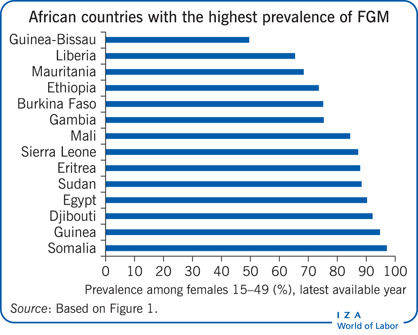Elevator pitch
More than 100 million women and girls in the world have had their genitals cut for cultural, religious, or other non-medical reasons. Even though international organizations condemn female genital mutilation (FGM), or cutting, as a violation of human rights, and most nations have banned it, it remains prevalent in many African countries, and is slow to decline. This persistence raises questions about the effectiveness of international and national laws prohibiting the practice as well as the potential role of returning migrants in changing embedded cultural norms. Does migration change migrants’ opinions and attitudes to this custom? If so, do they transfer the new norms to their origin countries?

Key findings
Pros
Migration can generate different attitudes toward social norms and different political opinions and persuasions.
Migrants who return to their home country can be an especially powerful vehicle for engendering new social norms.
Return migrants could help eliminate FGM as they can reduce the degree of importance attached to the “social identity” role of FGM.
Return migrants can be more effective than top-down interventions and information campaigns conducted by people from outside the targeted community.
Cons
Not all migration experiences give migrants the opportunity to learn and adopt new social and political values and norms.
The influence of return migrants is strongest when they are present in large numbers in their community of origin or when they rank highly in the social hierarchy.
Empirical evidence is scarce in relation to the process of social change in developing countries.